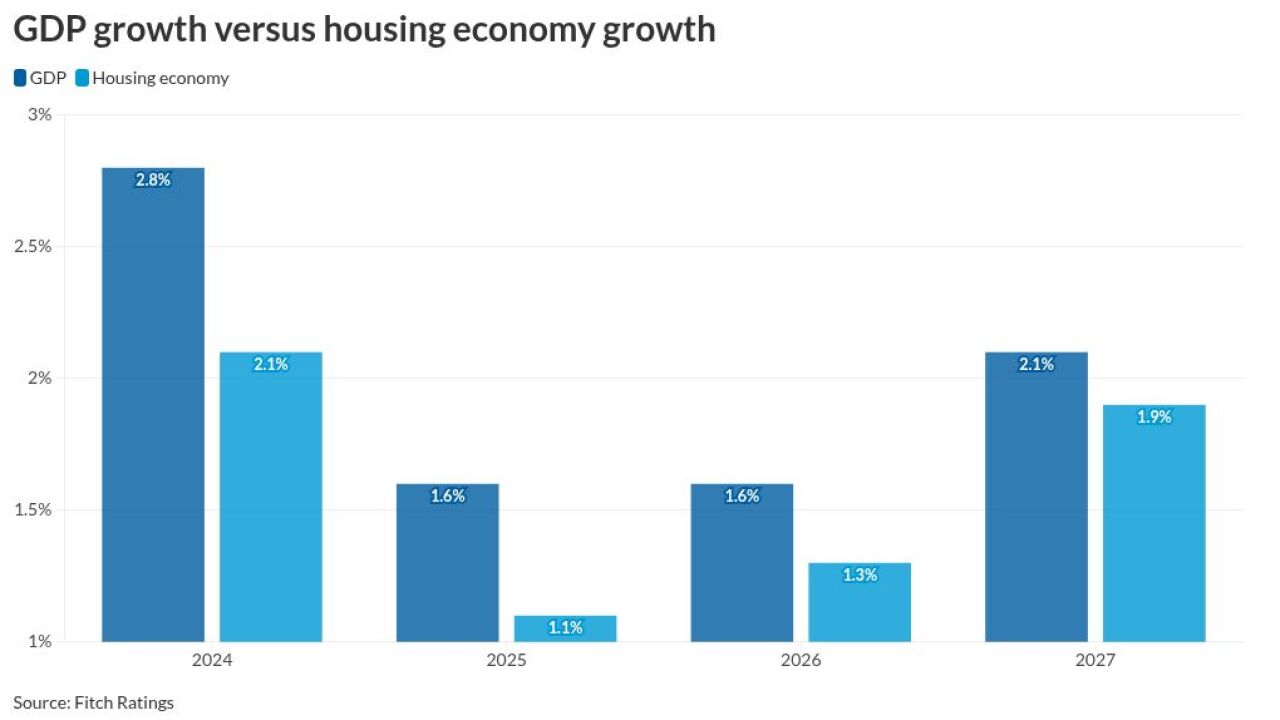(Bloomberg) -- Many of the biggest buyers of leveraged loans are facing pressure to cut back on their purchases as they run out of time to reinvest their money, and riskier companies looking for financing could soon be feeling the pain.
The buyers in question are money managers that purchase loans and bundle them into bonds known as collateralized loan obligations. By the end of the year, around 40% of these vehicles will run into time limits on their buying, according to Bank of America Corp.
Asset managers that have sold CLOs are a huge force in the $1.4 trillion leveraged loan market, holding about two-thirds of that debt. If issuers of CLOs are less inclined to buy loans, junk-rated companies will face higher funding costs, adding to their trouble as central banks hike rates and the economy is at risk of teetering into a recession.
The time limits stem from the fact that CLOs are designed to have finite lives, often of up to about 10 years. To ensure that investors get paid back on time, money managers that issue CLOs agree to follow guidelines that can restrict both when they buy loans and how risky their purchases are.
But these restrictions could end up pushing more junk-rated companies into bankruptcy now. For example, in tough times, corporations often ask debtholders for more time to pay back principal on their debt, but CLO issuers might not have flexibility to offer those extensions because of their constraints.
And many CLO managers are running up against limitations on loans they can own from companies with the lowest credit ratings, making it harder for the weakest corporations to get funding.
"Loan issuers already face a tougher borrowing environment because of higher interest rates, potential recession and rising defaults," said Trey Parker, co-founder and chief investment officer of Sycamore Tree Capital Partners. "This adds to their challenges."
Fund managers that have issued CLOs usually can buy and sell loans with few restrictions during what's known as a reinvestment period, which is often around five years. After that, they typically can't use the proceeds of maturing loans to buy new debt, for example.
About 17% of outstanding CLOs reached the end of their reinvestment periods in 2022, and this year another 25% are due to reach the end, adding up to around 42%, according to Bank of America.
CLOs face incentives to limit the average maturity of loans in their portfolios, including what's known as a weighted average life test, and the limits get shorter over time, said Keyur Vyas, a research analyst at Barclays Plc in New York.
Going Short
These rules are now encouraging some CLOs to buy shorter-term loans, making it harder for companies to borrow longer-term.
"Finding demand for loans is going to be a lot more challenging given technical headwinds," said Edwin Wilches, co-head of securitized products at PGIM Fixed Income, which oversaw $759 billion of assets as of September.
The end of reinvestment periods also gives CLOs less incentive to provide struggling companies more time to repay their loans or otherwise change terms of their debt, in transactions known as "amend and extend" deals. Typically such agreements would allow companies to pay a little more interest to lenders instead of having to get new loans.
"A lot of CLOs will be failing or closer to failing their weighted average life tests," said Pratik Gupta, head of CLO research at Bank of America. "And as a consequence of that, the managers of those CLOs may find it tough to agree to amend and extend loans if borrowers ask."
For much of the last decade, CLOs reaching the end of their reinvestment period might not have been a problem for overall loan demand. For one thing, many money managers were steadily buying loans to package into new CLOs, which would help make up for flagging demand from existing CLOs.
But with borrowing costs having jumped for new CLOs, issuance of the securities is plunging. Sales of new CLOs fell about 30% last year to $130 billion, according to data compiled by Bloomberg News.
Money managers who oversee CLO portfolios have tools at their disposal that can help them to continue buying even after their reinvestment periods passed. For example they can enter a transaction known as a reset, where a CLO buys back all its outstanding bonds and sells new ones at lower yields.
That essentially resets the clock, allowing them to reinvest again. But in an era of rising interest rates and higher funding costs for CLOs, resets aren't usually economically possible.
"It's very difficult to reset when the liabilities are this wide," said Lauren Basmadjian, co-head of liquid credit and head of US loans and structured credit at Carlyle Group.
Split Market
In the end, junk-rated companies that look to finance in the leveraged loan market bear the brunt of CLOs' limitations. Many CLOs are close to reaching constraints for owning loans rated in the CCC tier, making it harder for them to buy debt that's even close to the lower end of the junk rating spectrum. The end of reinvestment periods only adds to pressure on fund managers to stay away from longer-term, lower-rated loans with lower prices, and buy shorter-term, higher-rated debt that is worth more.
With so many CLO managers chasing similar debt, prices in the loan market are becoming increasingly extreme, with much of the market trading either above 96 cents on the dollar or below 80 cents, a level often associated with distress.
"What you're going to continue to get is a distinct bifurcation, which we've already seen, between better credits and those that are underperforming," said Laila Kollmorgen, CLO portfolio manager at PineBridge Investments.
Elsewhere in credit markets:
Americas
Bank of Montreal is among the companies looking to sell high-grade corporate bonds in the US on Thursday, adding to wave of issuance this week that had already topped $53 billion as of Wednesday.
- Bed Bath & Beyond Inc. said it might not be able to continue as a going concern, bringing another US retail chain to the precipice of bankruptcy
- Credit Suisse Group AG is paying up to raise billions of dollars in the US and UK as the troubled lender relies on attractive terms to keep funding plans in place
- Investment firm Angelo Gordon & Co. launched a private-credit fund that targets individual investors
- Ron DeSantis is at the fore of a growing crowd of conservatives who insist that big business has fallen under the sway of perfidious liberal social reformers
- For deal updates, click here for the New Issue Monitor
- For more, click here for the Credit Daybook Americas
EMEA
The frenetic pace of this week's debt sales moderated slightly on Thursday, with around 12 issuers set to raise at least €6.2 billion equivalent. E.On SE is the sole non-financial issuer in the market, with a two-part euro offering that includes a green bond.
- Ireland and Portugal are both offering euro notes, with the former opting for green funding. The sales will help to push weekly marketwide volume in the region well above €60 billion
Asia
Dollar bond sales in Asia Pacific have made a record start to the year, part of a global issuance blitz spurred by a drop in borrowing costs.
- High-grade dollar bonds are set to be outperformers in China's offshore credit market this year, as the Fed slows rate hikes while junk debt remains risky, according to Wang Shengzu, global head of asset management at Haitong International Securities
- The world's pile of negative-yielding debt has vanished, as Japanese bonds finally joined global peers in offering zero or positive income.
--With assistance from Carmen Arroyo, Boris Korby and Lisa Lee.
More stories like this are available on
©2023 Bloomberg L.P.






